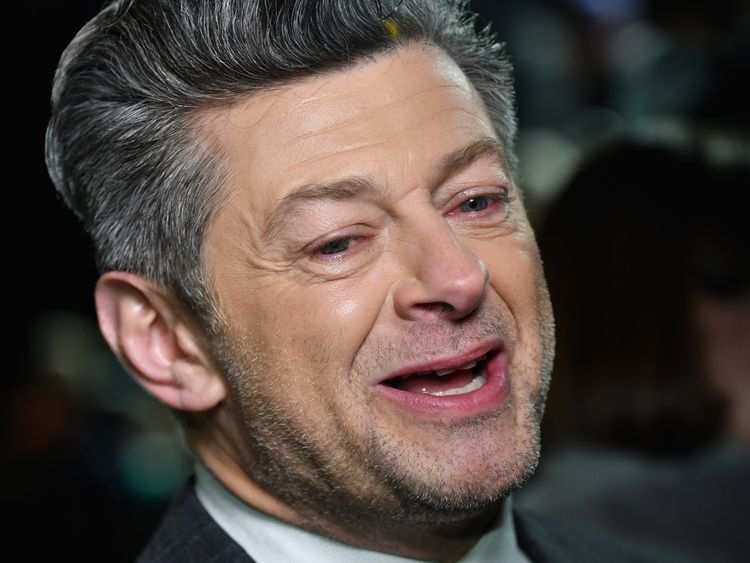As the British film industry prepares for its biggest celebration of the year, it finds itself at a defining point in its history according to some of the leading voices in UK movie-making.
The BAFTAs on Sunday night will highlight the best in film acting, directing and a variety of production skills.
But away from the glitz and red carpet, there are some profound questions facing the film business, which has developed into one of the most rapidly growing sectors of the British economy.
Its growth has been supported by a group of factors.
For one thing, successive governments have maintained tax incentives to encourage companies to make films in Britain.
For another, some huge blockbuster series have made their homes in the UK – James Bond, Harry Potter and now Star Wars. Their presence has helped to encourage the growth of a skilled workforce and cutting-edge technology.
There's the advantage of the English language, a great attraction for many American production companies, as well as easy access to many specialist support services – London, for instance, plays home to some of the world's greatest visual effects businesses.
Put that altogether and you get an industry that has stormed away from its doldrums of 30 years ago and is now thriving. Indeed, Pinewood Studios will shortly open another new sound stage, the latest installment of a £200m investment programme.
Adrian Wootton is the chief executive of the British Film Commission, an industry veteran and a man who think British movie-making has never had it so good.
He told me: "We could easily over the next five to 10 years double the size of the revenues generated for UK plc.
"We're already a $3bn-a-year business – bigger than pharmaceuticals now in the UK in terms of employment and the revenues we generate. We have a lot of potential still to exploit."
But there are challenges and, like just about every other business, the movie industry is having to work out how to handle Brexit.
In the short term, few doubt it's been a boost – so much revenue comes from America that the devaluation of the pound helped increase revenue overnight.
But there are also fears over what Brexit will mean for the industry's small army of skilled foreign workers.
Few sectors of the economy require such a global outlook as the movie business, where actors, directors, producers and technical skill move around the world.
It's not just the business leaders who fret.
Actor and director Andy Serkis told Sky News: "I feel like that we're going to lose out so much on cultural exchange and this is a huge part of that.
"People from all over the world can work here, not only Europe but particularly Europe. What we have to offer, in the way that the film industry creates other industries around it – I hope that is not damaged."

Sir William Sargent is the chief executive and founder of Framestore, one of the world's foremost visual effects companies.
He has led his team to Oscars, BAFTAs and Emmy awards, and says his workforce includes people from every country in the European Union.
"We need access to talented foreign people to help grow the business," he tells me.
"We simply cannot get enough British people with the right talents – British universities don't generate enough students with the rights skills for us. So I worry that Brexit might restrict my ability to access that talent to work in London."
Sir William predicts that his businesses in other parts of the world, including China, Canada and America, will grow quicker than his British business in the years to come.
But he says there is still a huge opportunity for the UK industry – as long as it is bold and ambitious in searching out new customers.
"In Europe and America we have less than one billion consumers who consume what we do; in Asia, between India and China, and all the countries around them, there are about four billion.
More from UK
"That is the scale of the prize and that is the scale of the positioning that we have the opportunity for in the UK.
"And if we do not do it in the next five or 10 years, then we will only have ourselves to blame."
[contf] [contfnew] 
Sky News
[contfnewc] [contfnewc]







